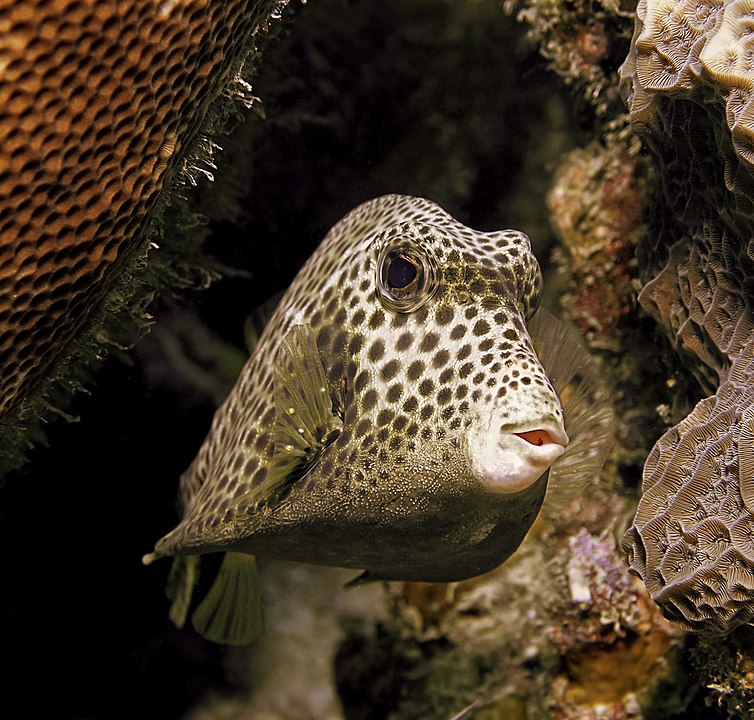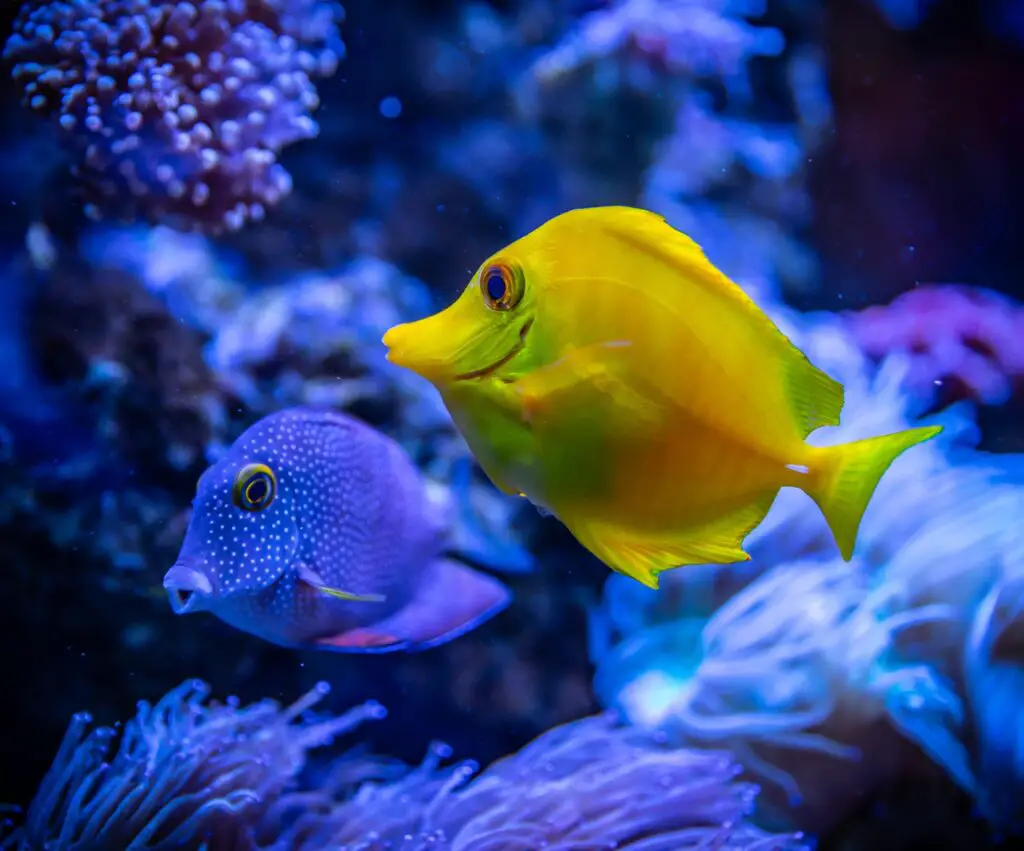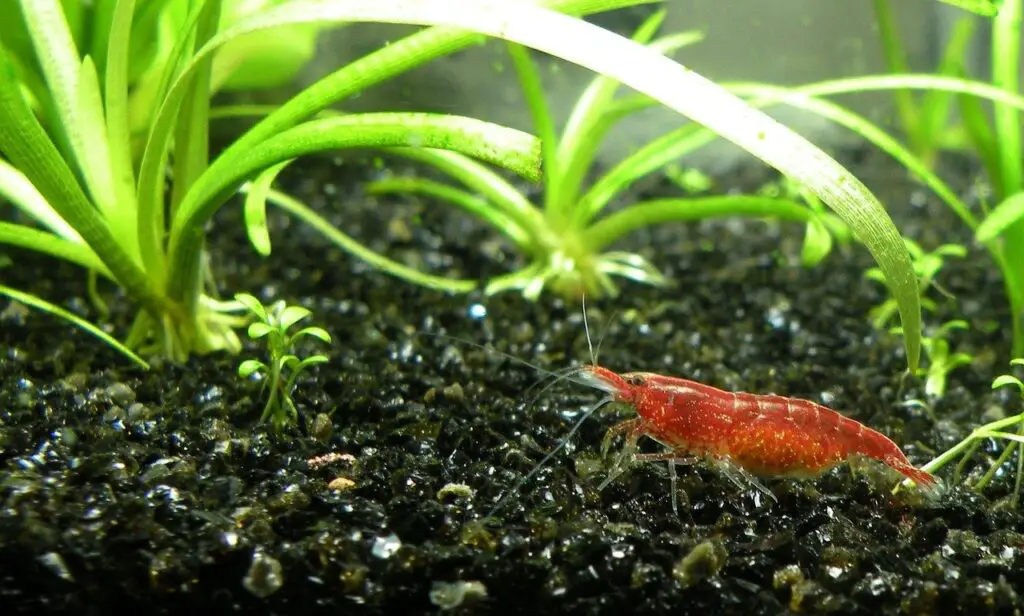Have you ever wondered whether fish can see water when they are swimming around in it? Is it visible to them, or are they unaware of it?
Fish are not thought to see water, no. This is because the brain is designed to focus on the things that are relevant to it, and the fish does not need to see the water in order to survive. The brain therefore ignores and dismisses the water, allowing the fish to focus on the things that it needs to see and respond to.
In this article, we’re going to look at what fish see, how their eyes work, and whether water is visible to them. We’ll also look at whether fish can see at night, and how well they deal with murky water. This should help you understand what your fish are seeing when they’re swimming around their tank!
How Do Fish See Through Water?
Fish can see through water because their eyes are specifically designed for it. Unlike human eyes, which are designed to function well in air, their eyes are designed to cope with being constantly wet and operating while submerged.
A fish’s eyes are also designed to focus more on movement and contrasting colors, rather than being able to focus on details the way that human eyes can. Fish don’t really need to see details; they just need to be able to see their prey and their predators, and respond when something swims away or approaches them.
Most fish can’t adjust their irises the way that humans can, and they change their focus by moving the lens of the eye toward or away from the retina. By contrast, humans focus by changing the shape of the lens. Fish can’t control how much light goes into their eyes, and it often takes time for them to adjust to a sudden change in the light levels.
Do Fish See Outside The Tank?
Fish are thought to see objects outside the tank, although an object needs to be at the center of the fish’s vision for most fish to be able to focus on it. If you place something reasonably close to the tank, there is a high chance that your fish will be able to see it.
Similarly, fish will respond to movement outside the tank. It is thought that fish can even respond to individuals and recognize human faces. Some fish may be able to differentiate between individuals if the people come close to the tank frequently, although further study is needed to understand this properly.
If you keep your fish’s food near the tank, you might find that your fish recognize the container and respond if you pick it up and move it. They may also notice when you are walking toward the tank and respond to your approach. They might swim away from family pets that sit near the tank, especially if they see them as a potential threat.
How Do Fish See In Murky Water?
Of course, it’s a lot harder for fish to see where they are going and what they are doing if the water isn’t clear – but surprisingly, some can do this. The method will vary depending on the fish. For example, sharks have an electrical reception system that will pick out the heartbeat of their prey, and help guide them toward it when the water is too murky.
Some fish also have crystals behind the retina of their eyes to reflect the available light, the same way that cats do. This improves their night vision and their ability to see in murky conditions.
Alternatively, the fish might depend upon their sense of smell or their taste. Catfish, for example, have barbels that are enormously sensitive to particles in the water, and these can help them navigate around. Vibrations in the water may also help them navigate and find their way.
Not all fish can navigate well in murky water, but some can. Those that live in rivers or sediment-heavy water are much more likely to be able to navigate in muddy water, although they may not depend on their eyes for this.
How Do Fish See Underwater At Night?
Again, this depends on the fish. Many cannot see well at night, and will generally only be active during the daylight hours, or when the tank lights are turned on. However, fish that are active at night may have a special kind of sensory organ known as a lateral line.
This lateral line runs along the fish’s body and helps it to gauge any changes in the water pressure around it. It can therefore sense when things are changing, which makes it easier for the fish to navigate.
Most fish have some amount of night vision. Fish generally have more rods (which are responsible for night vision) and fewer cones (which are responsible for color vision and spatial accuracy) than humans. That means they can see pretty well in low light, although many fish do still reserve their activity for the daylight hours.
What Does A Fish’s Vision Look Like?
We don’t know exactly what a fish’s vision looks like. It is thought that fish can see some color, and certain kinds of fish can also see ultraviolet light and polarized light. Fish have an excellent field of vision.
Why Do My Fish Stare?
If your fish seems to be staring at you, you might be puzzled – but bear in mind that fish can’t blink, so the stare could be a coincidence.
If your fish does seem to be directly staring at you, it might be hoping you’ll feed it, or it may be looking for mental stimulation. Staring could mean the fish is bored, hungry, curious, or afraid you are a predator.
Conclusion
Fish can’t see water, just as humans can’t see air, because their brains filter out any awareness of the water and focus on more relevant information. Many fish have surprisingly good vision, although this does vary between species. Some have much better vision than others.



